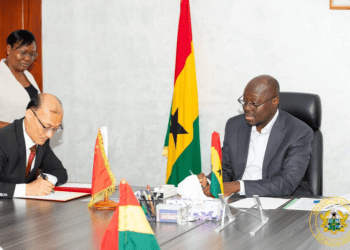The Gender Centre for Empowering Development (GenCED) has released a new research report revealing alarming levels of violence against women within Ghana’s political parties, with nine out of ten women surveyed reporting abuse.
The study, launched at a Post-Election Review Dialogue in Accra, shows that verbal abuse is the most common form of violence, with WhatsApp emerging as the leading platform for attacks.
In addition, the research highlighted a worrying lack of accountability, as half of respondents said their parties do not have internal mechanisms for addressing cases of violence against women.
The report further highlights that half of the respondents said their parties lack internal mechanisms to address such cases, leaving many women with no choice but to withdraw or limit their participation in politics.
According to GenCED’s Programmes Manager, Regina Borley Bortey, these findings demonstrate how systemic violence undermines women’s political ambitions, perpetuates gender inequality, and weakens inclusive governance.
She noted that, to tackle the problem, her outfit has urged political parties to adopt strong accountability measures, including the establishment of independent complaints committees and the enforcement of zero-tolerance policies on violence and harassment.
“These gaps in party structures means that many women either retreat from political activities or limit their engagements altogether to avoid abuse.
These experiences not only discourage women from active participation but also undermine their political aspirations, limit representation, and deepen gender inequality in Ghana’s political space,” she explained.
She stressed that addressing violence against women in politics is not only a matter of human rights but also a critical step towards strengthening Ghana’s democracy.
“Women cannot fully contribute to governance if they continue to face intimidation, harassment, and abuse within the very political institutions that should empower them. Political parties must act with urgency to create safer spaces for women to participate meaningfully,” she said.
The report also recommended digital literacy programmes to counter online abuse and regular gender-sensitivity training for executives, candidates, and party members.
“Ending violence against women in political parties is not optional—it is necessary to strengthen Ghana’s democracy and ensure women can participate fully and equally,” she stressed.












